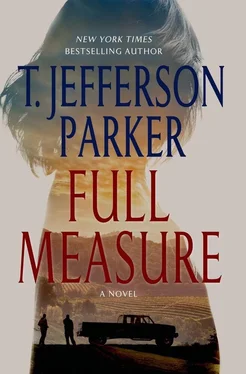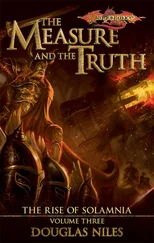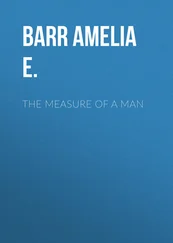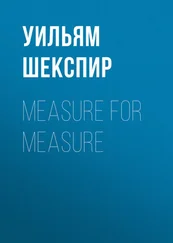Evelyn brushed a fallen flower petal from the hair on McKenzie’s shoulder. “I spent some extra time on myself too, girls. A good Village View photo one week from the election can’t hurt.”
“You’ll win,” said McKenzie.
“Absolutely,” said Dulce.
Evelyn wondered about that, given the wildfire that had occurred on her watch, the arsonist lurking unchecked, her defeat on the crosswalk issue, and the rife public anger at government incumbents in general. Next week’s Cruzela Storm fund-raiser could be a factor with the undecided. She wondered if she needed to nail up another fifty THIS TOWN IS YOUR TOWN — RE-ELECT EVELYN ANDERS FOR MAYOR signs before election day. Her opponent, Walt Rood, with his pleasant face and SMALL GOVERNMENT THAT WORKS posters, seemed to be watching her from everywhere she looked. Natalie fired away.
“Can we shoot a few in front of one of your houses?” asked Iris.
Evelyn saw the girls glance at each other but neither spoke for a moment. Dulce looked down at the patch of brown grass under the Meadowlark sign and McKenzie looked back at the trailers as if she’d heard someone call to her. “They’re trailers,” she said.
“Trailers are homes, too,” said Iris.
The girls looked at each other again and Dulce shrugged. “Okay.”
Evelyn followed them in. The road had been paved years back but had crumbled away to half-paved. She wondered why the city hadn’t maintained it — privately owned, probably. The creek ran through in a trough of cattails and she noted the dank wet smell of it. She heard Mexican music and television voices and smelled food cooking. A boy sped by on a bike and rattled off something in Spanish to the girls. Evelyn was surprised how subterranean and out of sight she felt down here. Just a few yards away, but high above, SUVs and luxury sedans and snappy hybrids sped up and down Mission, the drivers — if they were anything like her — largely unaware of the hidden world below.
“It’s called the cans,” said McKenzie. “Because of all the metal and aluminum. Las latas. As in, vivo en las latas — I live in the cans.”
“That’s funny but not funny,” said Evelyn.
The girls self-consciously glanced at each other again, then continued walking past trailers of many colors — lime green, tangerine, yellow, and pink. They were crowded tight but most had tiny gardens out front or decks. Many of the decks had sides and roofs made of trellises, shot through with vines. Evelyn could smell the blossoms, faintly, mixed in with the aroma of the fast-food places above them on Mission. Most of the decks had patio chairs or old couches and lavish potted plants and flowers. McKenzie stopped in front of a slouching sky-blue coach with a rainbow and puffy white clouds painted on it. “George’s house.”
Evelyn heard thumping sounds inside and a moment later three children spilled from the blue trailer to the deck. She guessed the oldest, a boy, at about McKenzie’s and Dulce’s age, and the two girls were younger than George had been. They smiled when they saw Iris, who climbed the wooden stairs yapping and herding them into place, then stepped back out of range. Natalie aimed her camera up at them. The boy stood straight, chest out and chin up, giving McKenzie, then Dulce, his hard look.
“Felix is the boss until his parents get home from work,” said McKenzie. “He makes his sisters do their homework and keeps them from fighting over the TV.”
Iris turned. “Come on up here, Evelyn. We need all of the crosswalk crew.”
After the photo shoot Evelyn said goodbye to the girls and declined a ride to her car from Iris and Natalie. Instead she walked alone through las latas , filling her eyes with this secret barrio she’d hardly even noticed before today. A gaggle of children ran among the trailers, yelling and laughing while grown-up voices chased through the windows after them. She heard a TV in English and another in Spanish. She followed the road around to where the creek widened into a pool under a bridge, the water shiny and smooth. There was a rough-hewn bench and table on the bank, wrappers and cans and plastic bottles collecting at the downstream outlet. The couple sitting close on the bench looked back at her, the boy large with pomaded hair and the pretty girl wearing a hot little outfit. They had take-out bags and looked happy. She gave a sorry-to-bother-you wave and they turned back to the water. Around the next bend in the threadbare road she saw a woman standing on her front patio between two large picnic tables stacked with laundry, folded, labeled, and ready for pickup. A washer and a dryer labored outside the trailer. Evelyn smelled the laundry breath of the dryer and the scent of KFC wafting in from above, where the power lines sagged heavily and the violet bracts of a bougainvillea overgrowing an old satellite dish reached skyward, vibrant with color, hungry for the fading sunlight.
She walked back up Mission toward her car. The climb was steep, even in mild weather and casual shoes. She stopped across from where George had been hit near the post office, which is where she’d parked her car. Then Evelyn got a sudden idea, and stepped off the curb.
It was nearly seven and almost dark now and to her left headlights charged uphill toward her while on her right brake lights snaked downhill in the far lanes. The median lay between. Waiting for an opening, she glanced down at the trees and rooftops of las latas. At forty-six, Evelyn was nearsighted but hadn’t seen a doctor because most of her work was up close, and because she could practically drive the streets of Fallbrook in her sleep. When they left town at night, Brian did the driving. So as she looked into the oncoming traffic she saw headlights and cars and the spaces between them, but to judge their speed and threat level was difficult. Cars were just way faster when you weren’t in one. She thought of her old tennis injury, the torn ACL in her knee, and how an ill-timed twist could put her on the ground with a bullet of pain.
She chose her moment and took her first step. She planned to take the near lane when the last car in a knot of five or six was safely past. When it whizzed by she accelerated into the lane, accelerated somewhat, she found, suddenly worried about her knee. She was almost to the next lane when a pickup truck burned rubber from one of the many driveways that lined the other side of Mission, turning left against the traffic. The truck jumped and the tires screamed as it peeled across lanes for the median to which Evelyn had committed herself. The speed of the truck seemed to nullify her own; she was in less than slow motion now, even though she had run cross-country at Fallbrook High School just a few short years ago. No, she realized, a few long years ago — long, long, long years ago! She calculated that the truck would kill her in the median in mere seconds unless she stopped right here and let it go by first, which would also mean certain death by another vehicle. She saw the onrushing constellation of headlights coming up Mission toward her and she knew those drivers were looking into headlights coming at them, and a pedestrian was practically invisible until too late. She lifted her knees and lengthened her stride, cutting across lane two at a perilous angle, trying to cut behind the truck.
Suddenly the world synchronized: the pickup truck blew into the median right in front of her, the driver’s eyes wide with surprise; the closest of the uphill cars swerved into the next lane to miss her; tires squealed and horns blasted and somehow that car skidded, screeching sideways across the far lane and the narrow shoulder, jumped the curb, and came to a stop blocking the sidewalk.
Evelyn, aware of all this and of nothing else, stood panting in the median. The pickup truck stopped not twenty feet from her and the emergency flashers went on and the door flew open. Down from the cab came a stocky blond woman in jeans and a plaid flannel shirt. She crunched across the median dirt and gravel and took Evelyn by the arm. “Are you okay?”
Читать дальше












